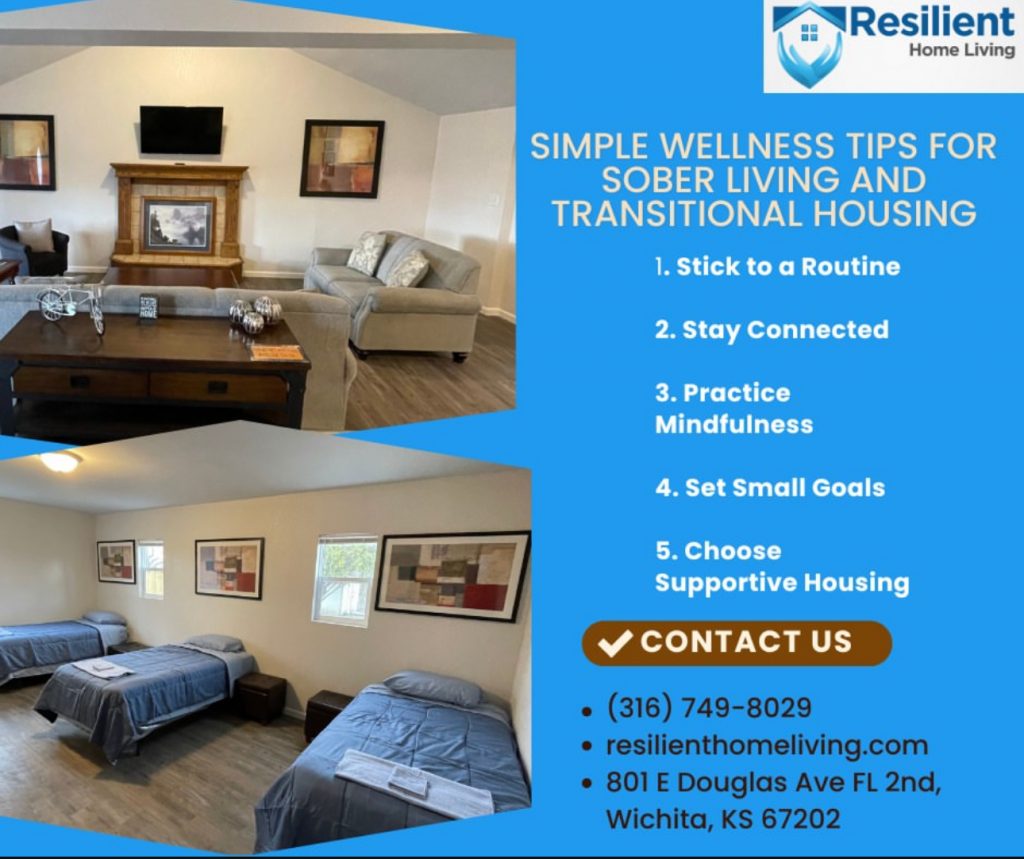Recovery is not a single event—it’s a continuous process of growth, healing, and rediscovery. Sobriety brings both challenges and opportunities. It requires courage to rebuild your life, redefine your identity, and find new ways to live fully without substances. One of the best ways to strengthen this new chapter is by creating a foundation of stability and wellness.
Here are five simple yet powerful ways to support your sober living journey and nurture your long-term recovery.
1️⃣ Stick to a Routine
Structure is one of the most powerful tools in early recovery. During active addiction, life often feels unpredictable and chaotic—sleep schedules, meals, and responsibilities may have been irregular. Creating a routine helps rebuild a sense of order and stability that can ground you during moments of uncertainty.
A healthy routine doesn’t have to be rigid or overwhelming. Start small:
- Wake up and go to bed at consistent times.
- Eat balanced meals throughout the day.
- Schedule time for work, rest, and self-care.
When you have structure, you reduce idle time—one of the biggest triggers for relapse. You also create predictability, which helps lower anxiety and improve mental clarity. Over time, your daily rhythm becomes something you can rely on. It reinforces a sense of control and normalcy—two things that are deeply healing in recovery.
A good rule of thumb: build your days around purpose and peace. A routine that blends productivity with rest helps you maintain balance while moving steadily toward your goals.
2️⃣ Stay Connected with Your Community
Sobriety thrives in connection. Isolation, on the other hand, often fuels loneliness, doubt, and the temptation to return to old habits. Staying connected—with people who understand and support your journey—is essential for emotional resilience and accountability.
Community can take many forms:
- Recovery meetings or sober support groups (AA, NA, SMART Recovery, etc.)
- Therapy or counseling sessions
- Supportive friends and family members
- Faith-based or spiritual communities
- Sober living homes or transitional housing
These spaces offer something invaluable: a sense of belonging. Being surrounded by people who “get it” can remind you that you’re not alone—and that others have walked the same path and found lasting peace.
Regularly sharing your thoughts, challenges, and victories with others helps release emotional pressure and build trust. Recovery is not about perfection; it’s about progress. When you stay connected, you give yourself the gift of mutual encouragement and accountability.
If reaching out feels difficult, start small. Send a message, attend one meeting, or spend time with a trusted friend. Every connection matters.
3️⃣ Practice Mindfulness
Recovery is as much about healing your mind as it is about healing your body. Mindfulness helps you become more aware of your thoughts, emotions, and surroundings—without judgment. It encourages you to slow down, breathe, and respond thoughtfully rather than react impulsively.
In early sobriety, emotions can feel heightened or unpredictable. Mindfulness helps you navigate them with compassion instead of resistance. You learn to observe discomfort rather than run from it, making it easier to manage cravings, anxiety, or stress.
Here are a few simple mindfulness practices to integrate into your day:
- Morning grounding: Take 5 minutes each morning to focus on your breath and set an intention for the day.
- Body scans: Notice where you hold tension and consciously release it.
- Mindful eating: Eat slowly and savor each bite without distractions.
- Gratitude journaling: Write down three things you’re grateful for each day.
Over time, mindfulness rewires your brain for greater calm and self-awareness. It teaches you to live in the present—a place where true healing and peace can grow.
4️⃣ Set Small, Achievable Goals
When rebuilding your life in recovery, it’s natural to want big changes quickly—steady employment, financial security, healthy relationships, or personal fulfillment. But the most sustainable growth comes from small, consistent goals that build confidence and momentum.
Instead of trying to do everything at once, start with realistic steps that move you forward one day at a time. For example:
- Commit to attending one recovery meeting a week.
- Save a small amount of money each month.
- Reconnect with one family member or friend.
- Take up a new hobby or exercise routine.
Each small victory builds a sense of accomplishment and reinforces your ability to stay accountable. When you achieve one goal, it fuels your motivation to keep going.
Remember: progress in recovery is not linear. There will be days of success and days of struggle. What matters most is showing up for yourself, again and again. Celebrate your small wins—they’re proof that you’re growing stronger every day.
5️⃣ Choose Supportive Housing
Where you live can make a world of difference in your recovery journey. A stable, substance-free environment provides the structure, accountability, and community you need to maintain your sobriety. For many people, sober living homes or transitional housing serve as a bridge between treatment and independent living.
Supportive housing offers:
- A safe, drug- and alcohol-free environment
- Accountability through house rules and peer support
- Community living, which reduces isolation
- Resources and guidance for job searches, budgeting, or counseling
Choosing the right environment can help you focus on rebuilding your life without distractions or triggers. It’s not just about where you live—it’s about surrounding yourself with people and systems that support your wellness.
Final Thoughts: Building a Life That Lasts
Sobriety isn’t just about saying no to substances—it’s about saying yes to a fuller, more intentional life. By building structure, connection, mindfulness, and self-trust, you give yourself the foundation to thrive.
Recovery will always have ups and downs, but every day you stay committed to your well-being is a victory. Be patient with yourself. Celebrate progress, not perfection. The journey is long, but it’s worth every step.
You deserve a life that’s grounded, peaceful, and full of purpose—and with the right habits and support, that life is absolutely within reach.

